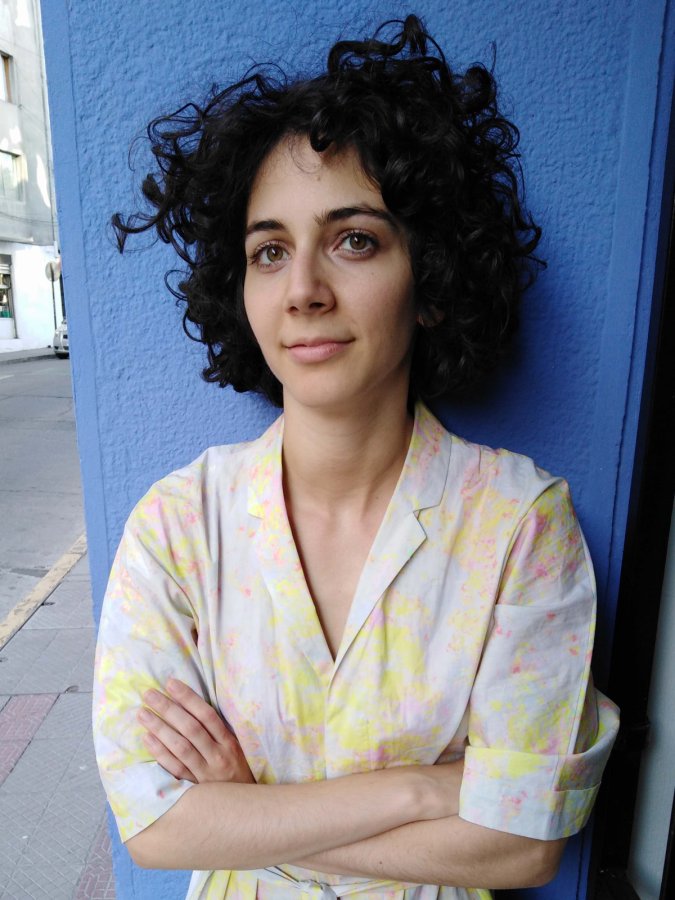48TH THESSALONIKI FILM FESTIVAL
November 16 - 25 2007
ROUND TABLE NEW SPANISH CINEMA
The audience of the Thessaloniki Film Festival had the chance to attend the open discussion on new Spanish cinema, which took place on Monday, November 19th at the Stavros Tornes theatre.
The discussion on new Spanish cinema, which is being held in the framework of the 48th Thessaloniki Film Festival, was attended by the President of the Festival, George Corraface, the Director, Despina Mouzaki, as well as the Spanish ambassador in Greece, Juan Ramon Martinez.
The discussion was coordinated by film historian and director, Esteve Riambau, while the panel included Pilar Torre, Vice Director – International Public Relations Instituto de Cine y Artes Audiovisuales, Jara Yanez, film critic – Cahiers du cinema of Spain, directors Rafa Cortes, Javier Rebollo and Pedro Aguilera, actresses Sonia Almarcha, Monica Cervera and Aina de Cos and producer and director Chema de la Pena.
The President of the Festival welcomed the panelists, saying that this discussion provided a wonderful chance to be introduced to modern Spanish cinema. “Spain and Greece are two countries that share common modes of expression. Their differences regarding cinema lie in its organization”, added Mr. Corraface.
The Festival’s Director, Despina Mouzaki, also thanked “these great directors and artists, for participating in this year’s festival, representing an upcoming, promising and restless wave of Spanish cinema”.
The Spanish ambassador in Greece, Juan Ramon Martinez, spoke in Greek, thanking the Festival for the tribute to new Spanish cinema as well as the opportunity it provides for these young Spanish artists to speak about their art. He expressed his certainty that the audience will be able to distinguish the new trends in Spanish cinema and, as a result, the culture of Spain. “This tribute to new Spanish cinema is one more step towards the friendship and understanding between the two countries”, Mr. Martinez said.
Film historian Esteve Riambau noted that Spanish cinema has been undergoing a sudden increase in the number of film productions, which in 2006 resulted in 150 feature films. He also spoke about the dominance of the American film industry in the market, something that makes it all the more harder for Spanish cinema. However, Riambau believes that new opportunities arise with television and new technologies providing further avenues. Spanish productions are an important part of European cinema, which is trying to form its own breed, hoping to reach the standards set by French cinema.
Pilar Torre mentioned the existence of a new statute in the Spanish film industry, which aims to play a strategic part in culture and the economy, to create new jobs, to contribute to cultural variety and the protection of the cinema’s heritage. She added that new technologies must be used carefully and that the financial support of film productions needs to be improved.
Actress Sonia Almarcha spoke about a new dynamic in Spanish cinema and about people who aren’t afraid to take risks and make investments. Her colleague, Monica Cervera mentioned the creativity of cinema’s new artists, which is indicative of the development and maturity of Spanish cinema. “This group of young people experiments with new subjects in their attempt to stray from the familiar direction of comedy in Spanish television”, she said.
Director Javier Rebollo noted that although Spanish cinema is lacking what is commonly known as a golden age, some of its artists could be characterized as “masterful snipers”; however, this is something that does not often repeat itself. He also mentioned that he believes in pluralism and characterized television throughout the world as “the black market of history”. Finally, he wished that Spanish cinema will have another strong showing at next year’s Thessaloniki Film Festival.
Producer and director Chema de la Pena stated that he does not submit to the dilemma whether cinema is an art or an industry, since he believes that cinema is both. He added that although many commercial films are produced in Spain, there are also other thought-provoking films for the audience and film critics alike.
Film critic Jara Yanez agreed that there is indeed a new and promising generation of directors in Spain. However, Yanez noted that this effort must be continued and that she is eager to see how it will unfold in the future.















